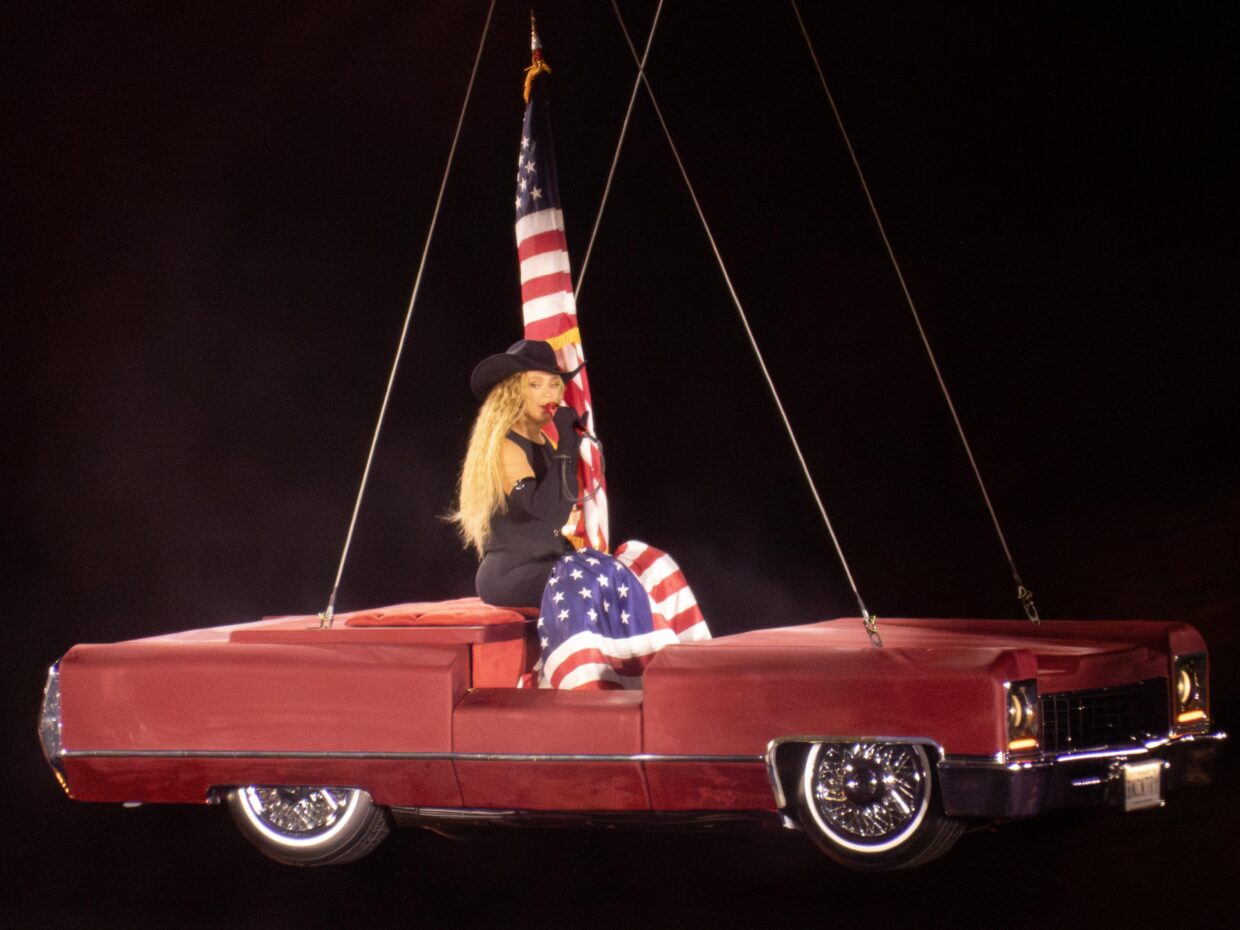Beyoncé closed out her Cowboy Carter Tour on July 26 at Allegiant Stadium in Las Vegas, ending a 32-date run. She didn’t just break records, she reshaped country music with the tour. With more than $407 million grossed and 1.6 million tickets sold, it’s the highest-grossing “country” tour of all time.
For me, the impact was deeply personal.
I was there in the crowd at D.C., and the second the lights dimmed, it was clear—this wasn’t just a concert, it was a cultural shift. The production was cinematic and her vocals were flawless. The energy in the venue was electric. Beyoncé opened with a haunting performance of “American Requiem” followed by a Jimi Hendrix–style rendition of the “Star-Spangled Banner.” She was setting the tone for a genre-fusing night that moved effortlessly between country, gospel and even ballroom. One moment she was crooning a bluegrass ballad and the next, the crowd was vogueing to deep basslines. Beyoncé is one of the only artists who could deliver that kind of genre-bending brilliance.
READ ALSO: Beyoncé Rewrites Country Music History With Cowboy Carter Tour
With the Cowboy Carter Tour, she became the first woman—and the absolute first American artist—to headline two separate tours that each grossed over $400 million. The mammoth trek followed her 2023 Renaissance World Tour, which raked in $579.8 million.
Even though it was a shorter run, the tour smashed more than 40 records, including:
- Fastest tour to surpass $400 million (in just 32 shows)
- Highest-grossing female engagement at a single venue: $70.3 million at MetLife Stadium
- Record-breaking runs at major venues like SoFi Stadium (L.A.), Tottenham Hotspur Stadium (London), and Mercedes-Benz Stadium (Atlanta)
The tour was about more than just numbers. It was a reset. Beyoncé reclaimed country music’s Black roots, elevated artists like Shaboozey and spotlighted Black creators in Western fashion. Her influence sparked a cowboy-core revival with fans showing up in fringe, boots and custom gear designed by Black women.
In D.C., I saw more than fans. I saw families. They all gathered to celebrate heritage, identity and I saw pure joy. When she closed the night with “Ya Ya” and the entire stadium sang in unison, it was more revival than a concert.
And then there was Las Vegas.
The Vegas finale somehow raised the bar even higher. Destiny’s Child reunited for their first performance in seven years. Her husband, JAY-Z joined her onstage. Her daughters, Blue Ivy and Rumi, both made appearances. Rumi even performed alongside her mom, her official debut. With Oprah, Tyler Perry and Kris Jenner in the crowd, it had all the glitz and glam but still felt intimate.
The Cowboy Carter Tour didn’t just break records, it broke barriers. Beyoncé redefined what country music is, who it belongs to and how it sounds. And as someone who witnessed it up close, I can say this: she preached. It was intentional, inspirational and it worked.
Whether you caught one show or followed the whole tour, one thing is certain: Beyoncé didn’t just ride into country music—she galloped in, bold and brilliant, forever changing the game.
